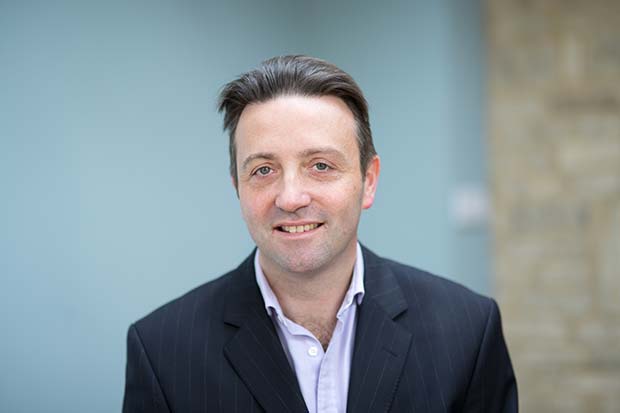Paul Hargreaves founded Cotswold Fayre 20 years ago from his home by buying brands from the Cotswolds and selling them to farm shops, since when the company has grown to become a speciality and fine food wholesaler supplying nearly 2,000 retail outlets throughout the UK.
 Cotswold Fayre is a B Corp, meaning it exists not just for its shareholders but to benefit employees, suppliers, the planet and the world community.
Cotswold Fayre is a B Corp, meaning it exists not just for its shareholders but to benefit employees, suppliers, the planet and the world community.
The company is the first fine food wholesaler in the UK to be completely carbon neutral.
Paul Hargreaves spoke to Wholesale Manager about the development of the soft drinks category and how the company is minimising its impact on the environment.
How can wholesalers improve their soft drinks offering?
The category continues to evolve and grow at pace. Soft drinks offer one of the best rates of sale per sku, so it’s an important category to get right on both the ambient shelves and in the chiller.
How has the soft drinks category changed in the last five years?
The product mix instore already looks significantly different than it did five years ago, as the category continues to grow and diversify to embrace evolving consumer trends and tastes, while still catering for the traditional needs of customers. In general, expect far more diversity and challenger brands.
What impact has the sugar tax had on the category?
The challenge is to offer all consumers a choice. Some will be looking for low sugar, while others prefer natural sugars to artificial sweeteners. Some will want traditional milkshakes and some will seek dairy free. Some will be searching for mainstream brands and others artisan producers.
Why is soft drinks so important compared to other categories?
The repeat sales on soft drinks are higher than other categories, and everyone is aware that we now need to drink more than we do. This is important in the work environment and at home, hence the increase in low or no sugar drinks, enabling consumers to drink more without excess carbs or sugars.
Are wholesalers offering enough choice in the soft drinks category?
We generally have more approaches from new soft drinks brands than other categories, and yet, 90% of these brands do not survive. With the huge multinationals heavily involved in the category, it is perhaps harder than any other for challenger brands to succeed. I can’t speak for other wholesalers, but Cotswold Fayre is constantly adding to its range and experiments with innovative products, not all of which succeed.
Are there any other ways in which wholesalers are not making the most of the category?
Perhaps those wholesalers who are too traditional and still sticking with brands that did well for them 10 years ago that may not do so well now in a more refined market.
Are manufacturers doing enough to reduce single use plastic?
One element holds true across all sub-categories, and that is the reduction of single use plastic. Last year, we took the decision not to list any new products in plastic to help minimise the impact on the environment and are seeking further environmentally kind measures. Many more brands are making the switch from plastic or tetra-pak into cans, which is experiencing the fastest growth.
Larger bottles also offer instant environmental benefits compared to smaller bottles, a message which retailers should be keen to promote. Limited editions and seasonal flavours will help bring more excitement to this important message.
Do you think the single use plastic issue is not solely the responsibility of manufacturers? Don’t we need a joined up solution that involves manufacturers working with DEFRA and local authorities?
I think that consumers are leading and will continue to lead the way here. They are voting with their feet against plastic and I am not sure we need to add layers of bureaucracy to this. Having said that the issue is not as simple as consumers are led to believe. The carbon impact of putting products into PET rather than glass is 10 times lower, and if recycled plastic is used, the plastic issue becomes a non-issue in a circular economy.
Last year you made the decision to not list any new products in plastic. Has there been any negative impact on sales?
Absolutely not, the weather always has more impact on soft drinks sales than any other factor. Sales of soft drinks were down in 2019 compared to 2018 largely due to the hot summer of 2018.
What other steps are you taking to minimise your impact on the environment?
Cotswold Fayre is a B Corp, so environmental issues are very important to us. In 2019 we made some logistics changes that took 1.7 million miles off our distribution and reduced our carbon impact by 46%. We offset the rest, whilst continuing to reduce, so are net zero for carbon.
Do you think there is a nationwide shift towards consumers buying soft drinks in cans and glass bottles?
Interestingly, a decade ago, cans were perceived as being far less premium than bottles, but there is now much more acceptance, significantly so over the last five years, of cans and cartons as consumers actively seek out more sustainable packaging options.
Why do you think soft drinks will account for a greater percentage of your sales over the next five years?
In 2019, soft drinks accounted for 13% of Cotswold Fayre’s overall sales, and we predict that this will increase to 15% in the next five years, with sku numbers already increasing from 593 to 703 (2018/19 – 2019/20).




Comments are closed.